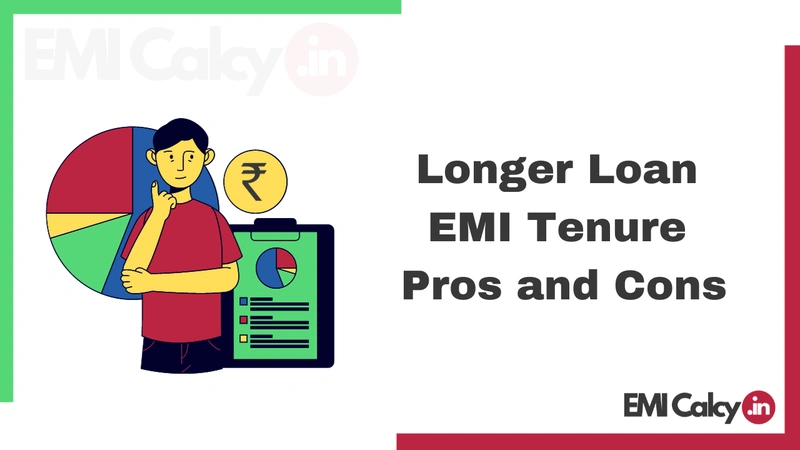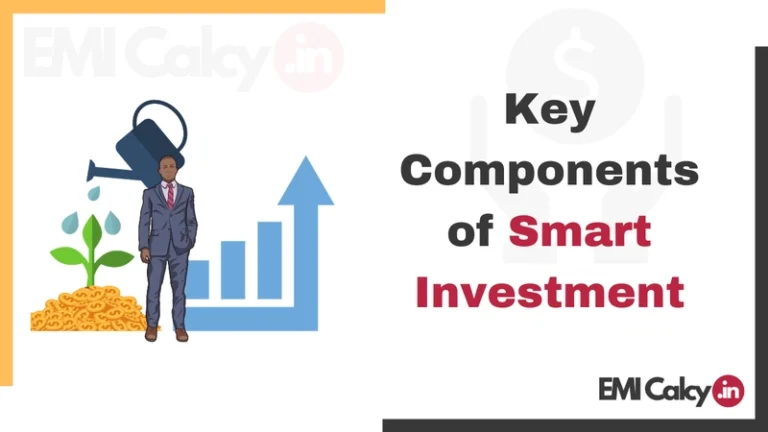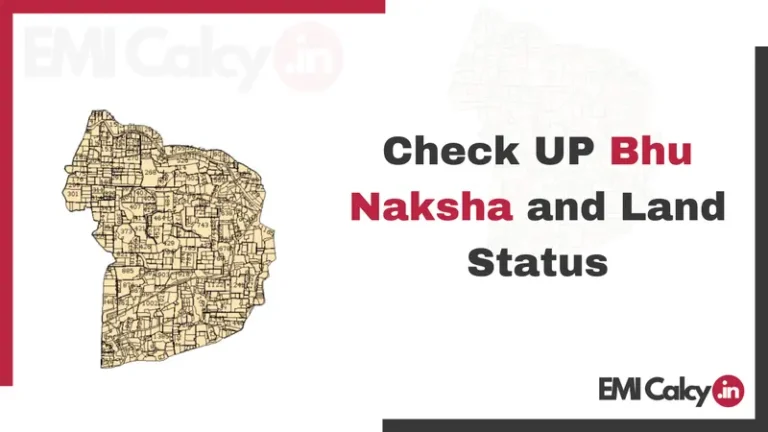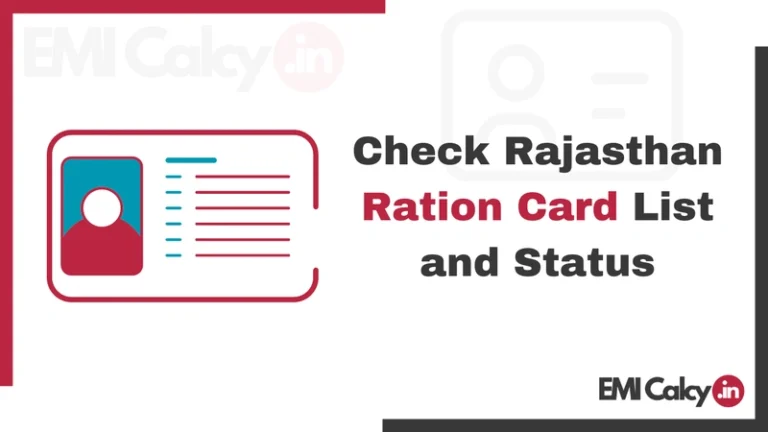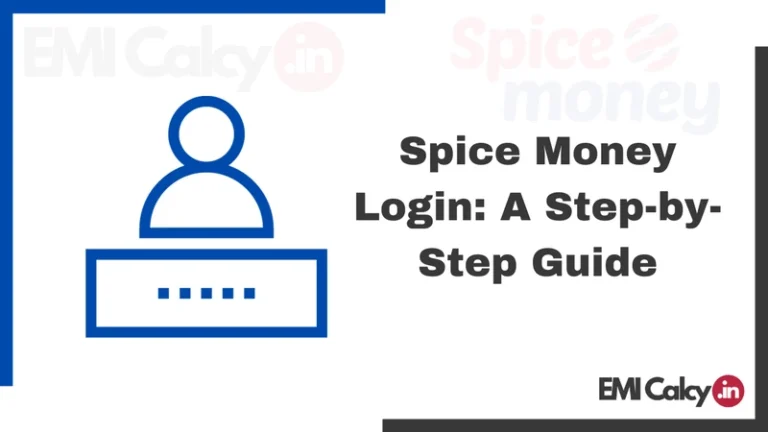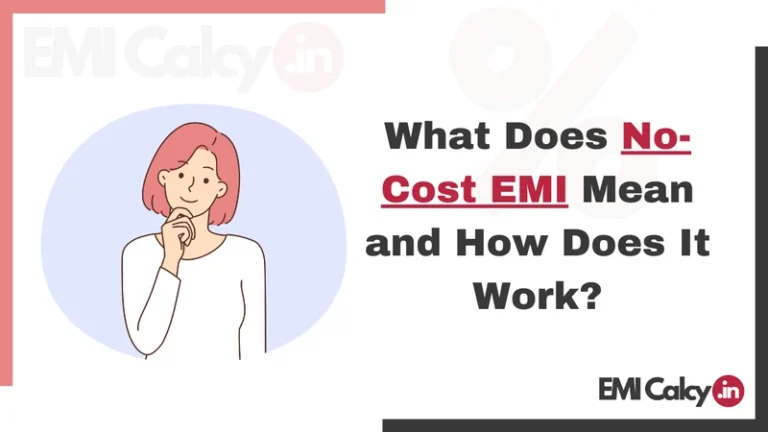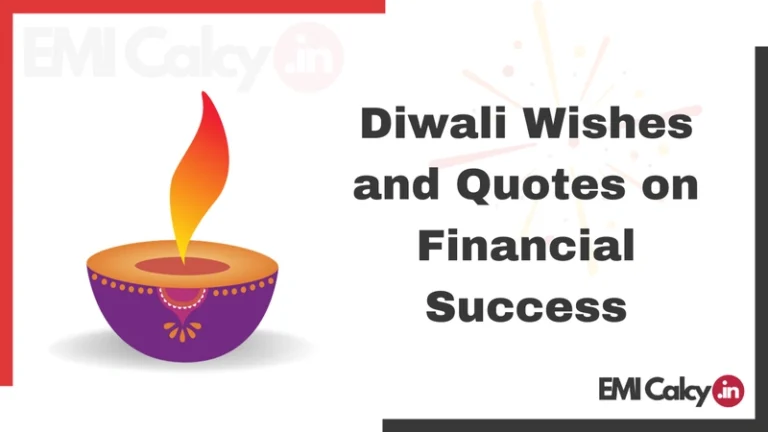In India, the dream of owning a home or car often involves securing a bank loan to make those dreams a reality. One crucial decision borrowers face is the choice of the loan’s EMI (Equated Monthly Installment) tenure.
The EMI tenure determines the number of years it will take to repay the loan, and it’s a decision that can significantly impact your financial well-being.
In this article, we will understand which is a better long-term loan or short-term loan, longer tenure vs shorter tenure, and the pros and cons of opting for a longer EMI tenure, using real-life examples to help you make an informed choice tailored to your unique financial circumstances.
Understanding EMI Tenure
Before we start with the car loan, personal loan, or home loan tenure, long or short, and the advantages and disadvantages of selecting a longer bank loan EMI tenure, let’s understand the basics.
When you take out a bank loan, such as a personal loan, home loan, or car loan, you have the option to choose loan tenure, long or short.
EMI is the fixed monthly payment you make to the bank, comprising both the principal amount and interest. The EMI tenure determines how many months or years it will take to repay the loan in full.
Common EMI tenures in India range from 5 years to 30 years for home loans and 1 year to 7 years for car loans and personal loans.
The Pros
Lower EMI Payments
One of the most apparent advantages of choosing a longer bank loan EMI tenure is lower EMI payments. By spreading your repayments over a longer period, your monthly installment amount decreases.
This can be particularly beneficial for borrowers who have limited disposable income and want to ensure their EMI payments are manageable.
Example: Consider two individuals, Raj and Neha, who both take out a home loan of Rs. 50 lakhs at an interest rate of 8% per annum. Raj chooses a 15-year EMI tenure, while Neha opts for a 25-year tenure.
Raj’s monthly EMI would be approximately Rs. 48,251, while Neha’s EMI would be around Rs. 39,219. The longer loan tenure makes it easier for Neha to manage her monthly expenses.
Related: Bank Loan EMI Calculator Online
Enhanced Affordability
Opting for a longer EMI tenure enhances affordability. You can stretch the loan tenure to a point where it better aligns with your financial capabilities. This allows you to achieve financial goals without compromising your lifestyle or daily expenses.
Example: Priya and Aman both aspire to buy their dream homes, but their monthly incomes vary. Priya, with a higher income, can comfortably manage a 15-year EMI tenure for her home loan.
Aman, with a lower income, chooses a 25-year tenure to ensure his EMI payments are affordable. This allows them both to achieve their goals while staying within their respective budget constraints.
Improved Eligibility
A longer bank loan tenure often translates to higher loan eligibility. Banks typically consider the EMI-to-income ratio when determining loan eligibility.
A more extended tenure reduces the EMI amount, making you eligible for a higher loan amount, which can be crucial when seeking to finance substantial investments like a house.
Example: Rohit and Anjali want to purchase a new car, but their individual loan eligibility is different due to their incomes. A more extended tenure helps increase their eligibility.
Rohit can afford a 3-year EMI tenure, while Anjali, with a lower income, extends her tenure to 5 years to secure the same car loan amount.
Related: Car Loan EMI Calculator Online
Tax Benefits
In India, home loan borrowers can claim deductions on the principal and interest payments under Section 80C and Section 24 of the Income Tax Act.
A longer bank loan tenure means higher interest payments, which can result in more significant tax deductions. This can lead to substantial savings in the long run.
Example: Anu and Deepak both have home loans of Rs. 75 lakhs, but Anu opts for a 20-year EMI tenure, and Deepak chooses a 30-year tenure. Over time, Deepak ends up paying more in interest due to his longer tenure.
However, he also enjoys higher tax deductions on interest payments, resulting in substantial savings.
The Cons
Higher Interest Costs
The most significant drawback of choosing a longer EMI tenure is the increased interest costs. As you stretch your loan repayment over a longer period, the total interest paid over the life of the loan rises.
This means you end up paying significantly more for your home or car than you would with a shorter tenure.
Example: Let’s take the case of Ravi and Suman, both of whom have home loans of Rs. 40 lakhs at an 8% interest rate. Ravi selects a 10-year EMI tenure, while Suman goes for a 20-year tenure.
While Ravi pays around Rs. 23.68 lakhs in interest over the loan’s life, Suman ends up paying approximately Rs. 65.23 lakhs. The longer bank loan tenure substantially increases Suman’s interest burden.
Related: Home Loan EMI Calculator Online
Prolonged Debt Burden
A longer loan EMI tenure means that you will be in debt for a longer period of time. While this can improve affordability, it also means you will be paying off your loan for many years, potentially affecting your financial goals and aspirations in the long run.
Being in debt for an extended period can also lead to a lack of financial freedom.
Example: Suppose Arjun and Meera both take out home loans, but Arjun selects a 20 year EMI tenure, and Meera opts for a 30 year tenure. While Arjun will be debt-free in 20 years, Meera will continue to pay off her home loan for an additional decade, limiting her financial freedom.
Potential Negative Equity
In the case of assets like houses, a more extended EMI tenure can lead to a situation where the outstanding loan amount exceeds the property’s current market value. This is known as negative equity and can be a financial risk, especially during economic downturns or if property prices decline.
Example: Imagine two friends, Sameer and Priyanka, who buy houses in the same locality at the same time, both with home loans. Sameer opts for a 15-year EMI tenure, whereas Priyanka chooses a 25-year tenure.
Unfortunately, property values in their area decline due to economic factors. As a result, Priyanka’s outstanding loan amount exceeds the current market value of her home, leading to negative equity, while Sameer’s loan remains comfortably below the property’s value.
Opportunity Cost
The longer you take to repay a loan, the more you miss out on potential investment opportunities. Money spent on interest payments could have been invested elsewhere to generate returns. Thus, choosing a longer EMI tenure could result in an opportunity cost in terms of lost investment returns.
Example: Rahul and Nisha both take car loans, with Rahul selecting 3 year EMI tenure, and Nisha opting for a 6 year tenure. Rahul pays off his loan quickly, saving on interest. Nisha, on the other hand, spends more on interest over a more extended period.
During this time, she misses out on potential investment opportunities that could have generated additional income.
Related: Personal Loan EMI Calculator Online
Making the Right Choice
The choice of EMI tenure is a critical decision that should align with your financial goals, income, and long term aspirations. It’s essential to strike a balance between affordability and interest cost. Here are some tips to help you make the right choice:
- Assess Your Financial Situation: Understand your current financial position, income stability, and long term financial goals. This will help you determine how much EMI you can comfortably afford.
- Calculate Interest Costs: Use loan calculators to estimate the total interest you would pay for different EMI tenures. This will help you make an informed decision by weighing the interest costs against affordability.
- Balance Your Loan Tenure: Strive to find a balance between affordability and reducing interest costs. While lower EMIs can improve monthly cash flow, consider opting for a tenure that doesn’t excessively prolong your debt.
- Consider Prepayment: If your financial situation improves over time, you can consider making prepayments to reduce the loan tenure and save on interest costs.
- Seek Professional Advice: Consult with financial advisors or experts who can provide personalized guidance based on your unique financial circumstances.
Conclusion
The choice of a longer bank loan EMI tenure has its own set of advantages and disadvantages. It’s a decision that should be made after careful consideration of your current financial situation, long-term goals, and comfort with debt.
Striking the right balance between affordability and minimizing interest costs is key to making the best decision for your financial future.
FAQs about Longer EMI Tenure on Bank Loans:
What is an EMI tenure, and why is it important?
EMI tenure is the duration over which you repay your loan. It’s important because it determines your monthly payments, interest costs, and the overall impact on your financial situation.
What are the advantages of selecting longer EMI tenure?
Longer EMI tenures offer lower monthly payments, increased affordability, potential tax benefits, and improved loan eligibility, making it easier to manage finances.
What are the disadvantages of opting for longer EMI tenure?
Longer tenures result in higher total interest costs, prolonged debt burdens, potential negative equity, and the opportunity cost of missed investment opportunities.
Can I change my EMI tenure after securing a loan?
It is possible to change your EMI tenure, but it depends on the terms and conditions of your loan agreement. Some banks may allow modifications with certain conditions, while others may not. Be sure to check with your lender for specific details.

